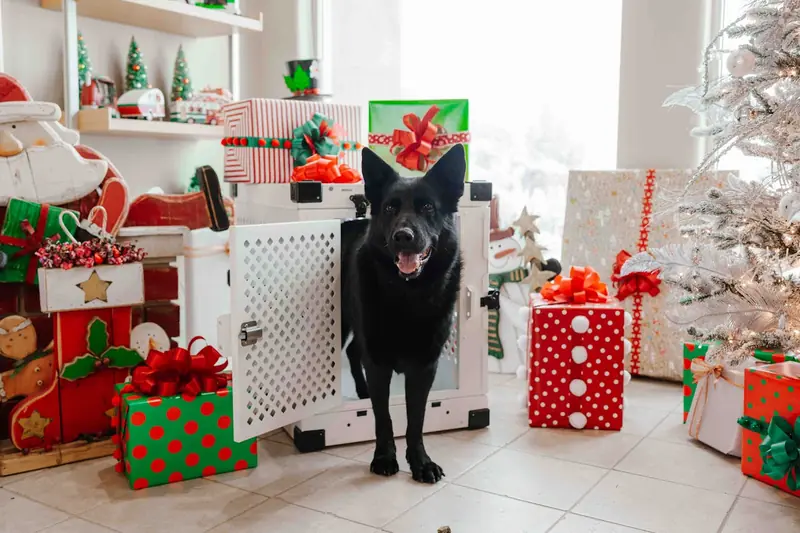
Researchers assert that holiday treats are not suitable for our furry companions, primarily due to their staggering calorie counts.
Almost everyone with a pet feels compelled to share something delicious from the festive table. This happens despite annual warnings from veterinarians leading up to the winter holidays: you should not feed, let alone overfeed, your four-legged friends with what you eat. Doing so poses serious risks to their health and even their lives.
Why Are Veterinarians So Strict?
Veterinarians dread the winter holidays—not just because our pets often indulge in the “rain” from the Christmas tree. The biggest nightmare for vets is the holiday food that people feed their animals.
The British veterinary charity PDSA has stated that feeding pets human food leads to significant weight gain.
“Showing love to your pets doesn’t necessarily mean you should share your plate with them,” noted PDSA veterinary expert Gemma Renwick.
According to her, “many popular holiday treats are shockingly high in calories.” Such food can severely harm the health of our furry family members and lead to substantial weight gain. Therefore, “it’s best to stick to their regular diet and feeding schedule as much as possible.”
PDSA explained that for a medium-sized dog, like a Beagle, enjoying turkey for dinner is equivalent to a human eating four full meals.
Experts also calculated that for such a dog, just four pigs in blankets are calorie-wise equivalent to a complete Christmas dinner. (Pigs in blankets are small sausages wrapped in pastry, a traditional part of the British Christmas feast.)
Meanwhile, for a cat, a Yorkshire pudding is like a human eating one and a half Margherita pizzas.
Even a small amount of certain foods can be high-calorie for pets. For instance, a serving of ham for a dog is equivalent to 10 chicken skewers that a person might eat.
According to representatives of the charity, obesity from holiday treats is a common issue among domestic animals. This condition increases the risk of developing diabetes, arthritis, heart disease, and respiratory issues, as reported by the Daily Mail.

It’s Not Just Extra Calories That Are a Problem
PDSA also pointed out that it’s not just the extra calories that pose a problem. Many human foods can be dangerous for pets for other reasons as well.
Fillings and sauces often contain onions and garlic, while pies and Christmas cakes may include raisins and currants. These ingredients can be deadly for both dogs and cats.
“But if you’re really eager to share holiday food with your furry friend, remember that even the smallest piece will be a huge treat for them,” said Ms. Renwick.
On this day, you should reduce the amount of regular food your pet eats to prevent them from consuming excess calories. Safe options for them might include “plain, unglazed, or ungreased dishes that won’t upset their stomachs.”
“Boneless white turkey meat, mashed carrots and swede (without oil or onion), and simple vegetables are all good choices,” the expert advised.
She recommended not to share too many holiday foods with your four-legged companion in the days leading up to and during Christmas, as they may come to expect something tasty from you every time you sit down to eat. This habit is not healthy.
